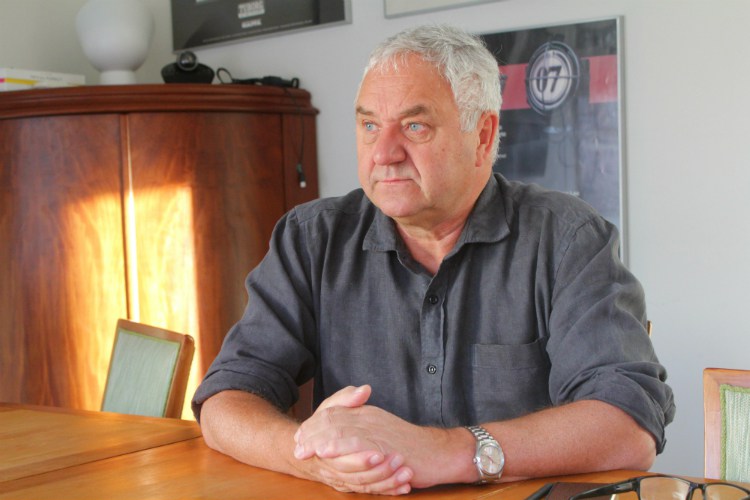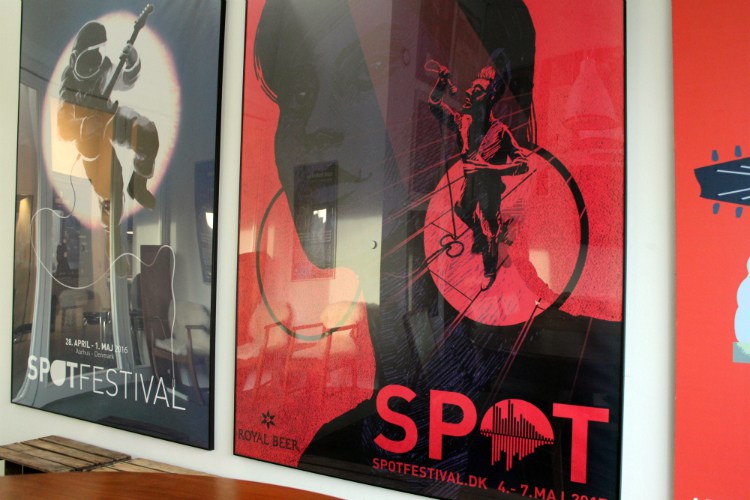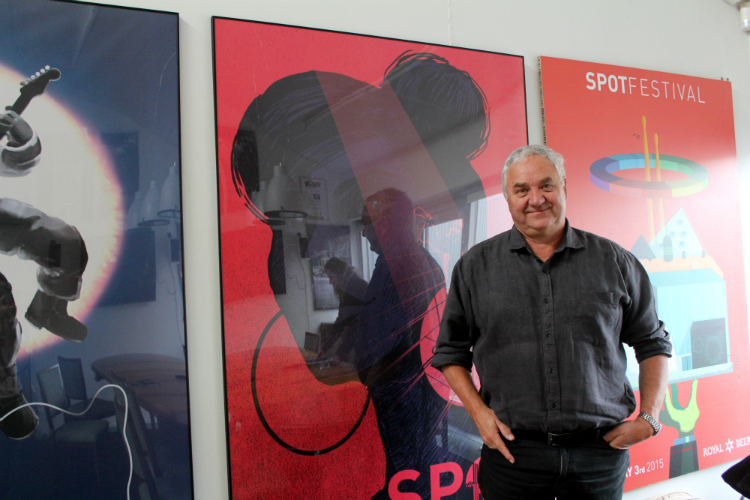SPOT Festival – a rendezvous with the Danish and international music industry

By Madalina Paxaman, photos by Guki Giunashvili, Jutland Station (www.jutlandstation.dk)
SPOT Festival is one of the most sought-after events happening in Aarhus. This year, between May 9th and May 13th, approximately 8000 visitors will enjoy the performances of up and coming and more established musicians from Denmark and other Nordic countries. Nevertheless, SPOT is not only about concerts. Its significance lies in the fact that it gives the young artists the chance to meet and network with important scouts, producers and songwriters from US, UK, Denmark and the Netherlands.
The leader of ROSA (The Danish Rock Council), Gunnar Madsen talks to us about SPOT festival, about the challenges in organizing such a big event and about the role of networking in the music industry.
Jutland Station: What can you tell us about this year’s lineup of young musicians?
Gunnar Madsen: I haven’t heard from my staff anything that has been a paradigm shift in the music genre so this will be a mix of electronic music, indie music, eclectic music of all kinds.
The fact is that we present between 200 and 300 new acts and in that perspective, you have to realize that not all the acts will “be the future”. Inside the rhythmic music we have to recognize that there is a flow of people making music who won’t survive because in Denmark, as in many countries, modern music is not subsidized to survive. We can subsidize them to help to develop themselves but if they can’t survive in the market they will fall out. And it is a part of the game because it is very important that we have a huge environment producing music.

The leader of ROSA, Gunnar Madsen has been involved since 1994 in organizing SPOT festival (photo: Guki Giunashvili)
We try to base our festival on music that is so-called “original”. It is not much music that is really original anymore, not in the digital age when people are cutting off anything and use it, but in the sense that the performers have the rights to the music, that they have, so to speak, made and claimed the rights to the music. We don’t do copy music and I think it is pretty important. Maybe this is not the best take when you talk about exporting music because mainstream export will normally be inside the frame of music or style or genre that is possible to be produced and to promoted anywhere. But is also a cultural signal for us. It is also important for us to say: well we might be a small territory – as Denmark is five or six million inhabitants but we have and we insist that we have our own culture and that creates our own position as We Danes. It is a bit old-fashioned, I guess (…) But this is important for us to show that Denmark has actually a high production of valuable art, valuable music.
“Our main challenge is that we have
decided to present every year new music”
Jutland Station: What are the challenges faced when organizing an event of this scale?
Gunnar Madsen: First of all, there is of course, the economical challenge. We have been working with this concept for over 25 years so now we know quite a lot about what is possible and what isn’t. Our main challenge is that we have decided to present every year new music because inside funding [sector] there is also mainstream. And mainstream wants to fund something everybody knows of, they want to fund the “popular stuff”. Only the minority wants to fund something they don’t know. So, in that sense, we are every year challenged. On the other hand, this creates every year a strong story about our integrity. And artistic integrity is also something worth because it might be a minor group of funders who has set up the goal to support institutions or events who claim their integrity.
We have the challenge to find every year proper logistics for the event (…) Many years ago we started cooperating with the people in the city. Instead of being on our own we tried to share ideas with people, share the economy so that people who had something we did not have, for example a stage, could be part of the festival. So, over the years we have built up a network of stages that we consider good partners. Some of them put money in but a many of them put in a lot of effort and power and, of course, they are part of the communications strategy. (…) Even after almost 25 years, it is tough for us to tell our story simply because every year when you have to change the line-up and it has to be new music, the story so to speak “dies” every year. If you have the same act every year, the “big act”, people come there year after year to listen to their idols so they come to know the festival so you have an audience from the 25s to their 75s. Every ten years we have a new audience and that makes another totally different communicative situation and we settled that but we have to realize that there is a challenge.

Festival has 25 years of history and artwork of the main poster changes each year (photo: Guki Giunashvili)
People who are coming to our festival, and even if there are so many concerts, should be able to rely that all concerts start on time. And that’s a challenge. (…) It’s important because when we tell people “come and listen to a lot of new stuff”, it is not good if they find out that they came too late because the bands have already played. They must be reliable especially for international guests coming a long way to listen to just one band. This is the kind of respect you build over the years. I am proud to say we had very few problems.
“In the music industry, like in all other
businesses, knowledge is everything”
Jutland Station: Looking at SPOT+ and Let’s talk, what are the outcomes you expect?
Gunnar Madsen: I think we have two agendas with this. One is simply to create a frame for networking. It is a way to get to know people. And the other is the pure educational goals that we have.
We claim that is important that if the musicians, artists but especially Danish [music] business… if they want to compete or to trade in the world, knowledge and networking is everything (…) I have seen it in my career so many times that people going up knowing nothing and for the artists, it can be OK, but if you claim that you want to breakthrough you simply need to have some professional skills and you need to have some professional tools. And how do you get them? Well, through education or meetings or SPOT+ where speeches, meetings, workshops offer the possibility to learn a lot about the conditions in different countries and inside the whole business industry which is changing all the time. Like we talked about the digital world, social media – this is a totally new way to promote music. Five, six years ago nobody knew about it and therefore is important to provide all the time the musical environment with the best knowledge. Is as simple as that.

[SPOT is collaborating with Jutland Station and will bring you their articles in our news section. Be sure to check out their page at http://www.jutlandstation.dk]


